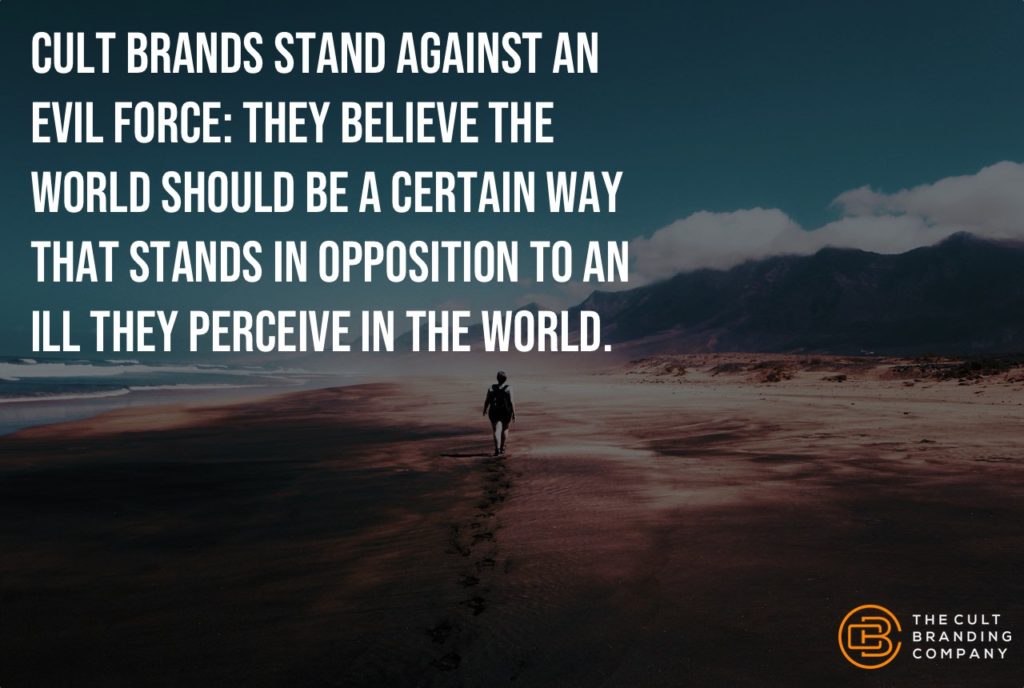
It’s common to talk about the customer journey: the important steps the customer takes when interacting with your company. But, many companies forget to pay attention to the journey their business is on. And, it’s through this journey that we can not only become heroes to our customers but also help them become the heroes in their own journeys.
In A Hero With A Thousand Faces, Joseph Campbell describes the hero’s journey: “A hero ventures forth from the world of common day into a region of supernatural wonder: fabulous forces are there encountered and a decisive victory is won: the hero comes back from this mysterious adventure with the power to bestow boons on his fellow man.”
The hero is a person who is impelled to go on a journey, conquer an evil threat, become changed, and, in doing so, return help to their fellow humans and represent an ideal.
This is no different than what cult brands do for their customers.
Cult brands stand against an evil force: they believe the world should be a certain way that stands in opposition to an ill they perceive in the world.
In doing so, they end up standing for something. And, by standing for something, they develop a super-charged value system that provides meaning to customers who believe the world should be the same way.
Cult brands, in effect, become champions of their customers’ values. And, by enabling the customers to associate with something of meaning, we become guides that help them on their own lives’ journeys.
To become a hero to your customers, you must first heed the call to adventure. This call can come from many sources. As Campbell writes:
The hero can go forth of his own volition to accomplish the adventure as Theseus when he arrived in his father’s city, Athens, and heard the horrible history of the Minotaur; or he may be carried or sent abroad by some benign or malignant agent as was Odysseus, driven about the Mediterranean by the winds of the angered god, Poseidon. The adventure may begin as a mere blunder…or still again, one may be only casually strolling when some passing phenomenon catches the wandering eye and lures one away from the frequented paths of man. Example might be multiplied, ad infinitum, from every corner of the world.
The call itself is important, not where it comes from or how it arises. For your business the call to adventure is what motivates your business at a level beyond pure profits.
It’s your business’s passionate purpose.
It points the way for your business to become more than a bottom line. It compels you to be a hero to your customers, making you irreplaceable in their hearts and minds.
Are you ready to become the hero your customers deserve?
What’s your call to adventure?
